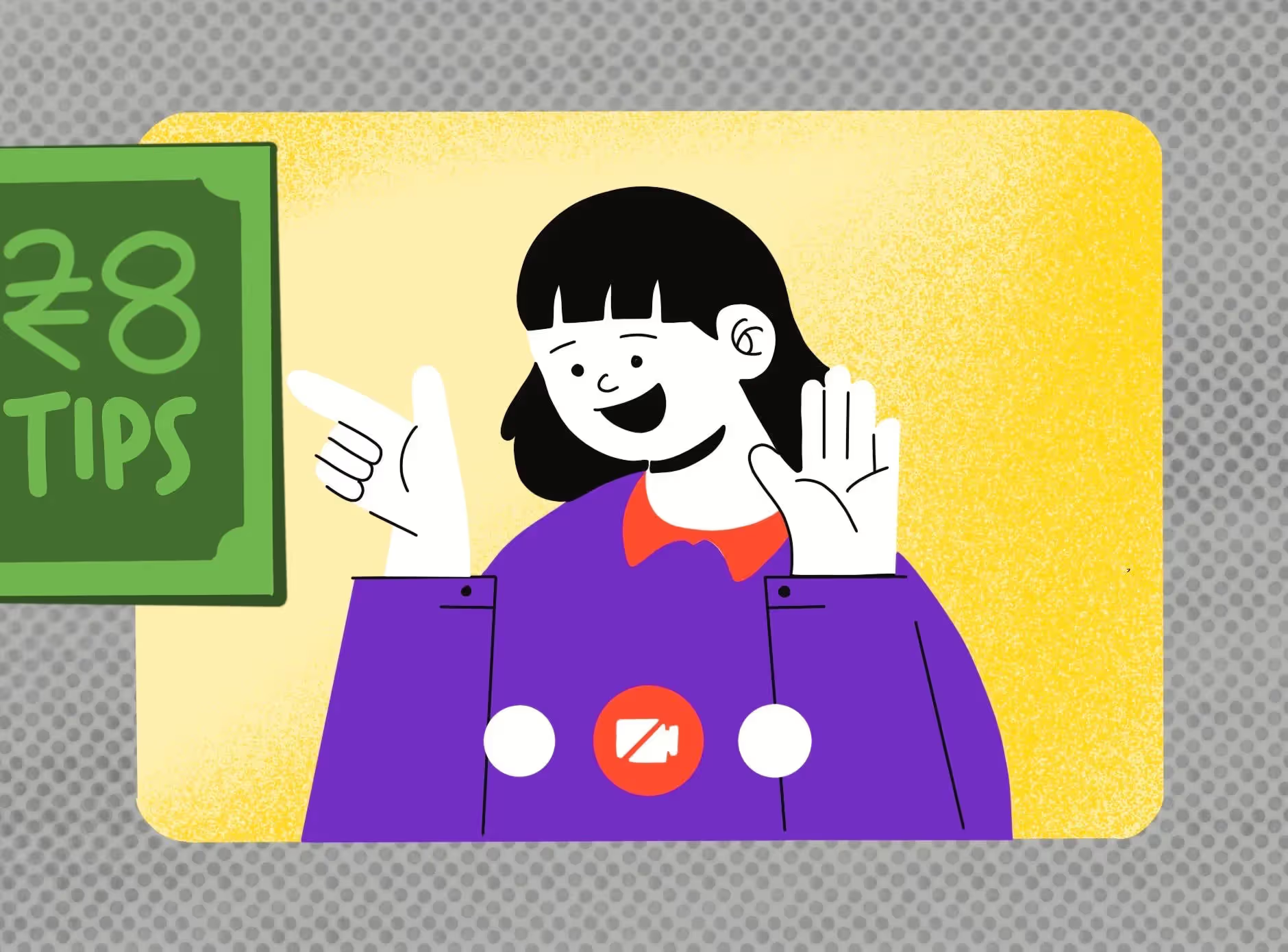




Key Takeaways
How to market online courses in 2025? That’s a rather broad question if you think about it. What strategies should budding educators use to maximise their profits and engage more students? There are so many moving parts in the ever-expanding world of education, and social media is just one of a plethora of variables that can affect your success.
Although I believe that a keen interest in marketing yourself or your business is something we should all have, I also know that some people are not particularly interested in learning about marketing for profit. Let’s go deeper into why being knowledgeable about the internet might benefit you.
Helping people get more from the web is what our community is all about, which sums up perfectly why we decided to create this guide! It’s easy to market your courses online if you consider how the marketing landscape will change over the next couple of years. It’s also helpful to remember that several factors affect online course marketing, and it’s essential to consider them all to succeed. There are so many moving parts involved in marketing online courses that it can be overwhelming. But by leveraging valuable tips and the right strategy, you can get more returns on your investment and engage more students who want to learn from you. And let’s face it, the internet is not going away anytime soon. The sooner you accept this, the better you will be at seeking out your target audience and generating a healthy amount of leads.
Here are the top 5 strategies that you need to do a deep dive in when marketing your online course:
Defining your target audience for your online course
"What market am I going to target?" I'm sure you've been asked this question.
Just think about what you have seen online and on other websites. Who was the person that gave you the feeling that they were someone similar to you? Someone who's in the same situation as you are but is already further than where you are right now…
A and B are most likely interested in different things. So if you market to them the same way, won’t you end up creating something for no one in particular? That’s why it pays to be specific regarding your approach toward your target market.
I have found that this is one of the most challenging questions posed to an online course entrepreneur. If you are building your first online course, it is wise to know your target market in advance. It’s an important demographic to identify, so who are they?
Follow these 4 steps when figuring out your target audience and creating a course for them:
- Step one - Figure out who is your target audience: You can distinguish your audience based on age, gender, economic background, educational level, etc. This will give you a general idea of your audience and their behaviours at large.
- Step two - Define what your target audience wants to learn about: Your target market will constantly be undergoing constant change in 2025--and the changes that occur will impact what they need to know. You’ll do well to identify your target market and then define what they want—and don't need--to learn about. If you can nail down what your audience wants to learn and isn’t available in the market, you have hit gold already!! So ask the people what they want and need to learn.
- Step three - Identify the social media platform(s) on which your target audience spends the most time on: In 2012, Gary Vaynerchuk said that in 2 years, social media would be dead. In 2014, he predicted that by 2016, Facebook would lose 80% of its value. Yet here we still are in 2025, and social media is still alive and kicking... apparently. Still, the question remains: which social media platform(s) should you focus your marketing efforts on? Do you know what we should do?
You should look at the social media platform(s) where your target audience spends the most time. This will most definitely help us identify the best place to market your online courses in 2025. You may be asking yourself, “what social media platforms will be cool in 2025?” … and the answer is simple: the ones where your target audience spends the most time. This might not seem obvious when you’re trying to figure out where to focus your marketing efforts.
There are a lot of behind-the-scenes changes happening in social media these days, but it’s essential to stay on top of which ones are grabbing people’s attention.
- Step four - Develop course material that attracts that social media platform's user base: Remember, it isn’t about finding the right answers but asking the right audience.
- Ask the following questions either to yourself or to a group of your audience.
- What do you want your target customer to feel after taking your course?
- Why are you better than other online course providers?
- What platform best suits your course?
Creating a unique value proposition for your course
In 2025, people will sell the same thing you do (online courses), but they will do it better. It may be more expensive, more difficult to understand, in a weird niche that even you had never thought of, etc. This makes marketing your product more challenging than ever before. How do you stand out in such a crowded market? Simply create a unique value proposition! What is a unique value proposition?
Business Dictionary defines it as a clear and distinctive message that states who you are, what you do and what value you provide to your customers. Creating a "unique value proposition" for your online course will help you stand out, so people will enrol in it. From my experience, I've found that having a unique value proposition translates into sales and profits. If your course helps solve a common problem, then your value proposition could be the solution to that problem. Here is an example of a Unique Value Proposition:
Telling people to read, listen, and watch—yawn! Who wants to do that when they could be singing and dancing? When I was in school, my English teacher taught us grammar using different songs about tenses, punctuations, verbs, etc. (This lecture used to be the highlight of our day!) Do something new and innovative that ends up happening to be the highlight of people's days.
Identifying your Core marketing platforms that you are comfortable with
What is a marketing platform? Do you know those platforms you use to sell your products and services or blog posts? The same ones allow you to make calls and texts, stream videos, post pictures and listen to music while writing blogs. Wait — aren’t those marketing platforms too? (Get it?) While I understand what these are and how we use them every day, when it comes to branding for my business, I think about the platforms I can use to help me reach potential customers. I often get the question, “Which marketing platform should I focus on?” The answer is easy, right?
Focus on all of them. However, the reality is that you can’t be good at everything. There are a lot of marketing platforms out there; some can make your life easier, while others might just fall into your lap and change the way you market.
Ask these simple questions before you decide what your core platform is:
- Where is my target audience most active?
- What type of content am I able to produce effectively and efficiently?
- What suits my marketing budget and still gives me the most exposure?
When you talk about your marketing platform, you’re talking about a couple of different things. The first thing is the platform on that people will view your content. The second is the places you’ll be able to advertise your content in other formats so that it can reach more people. Observe your target audience well before launching your marketing plans!
Do keyword research for your online course title
I'm sure you've done keyword research many times before. You might have even created an online course yourself. But when it comes to keyword research for your online course title, this is always harder than you think. Of course, you will do keyword research, but the problem is that it's never going to end. Whenever you complete it manually and then think of the next idea that could get you more money or traffic, you'll need to find new keywords again. It's like a never-ending circle, and this is how people create a bad title or miss out on essential words/phrases because they didn't do an excellent job with their keyword research!
Keywords are essential when you’re creating a course. You need to find the right niche, but also you want to make sure people can find your course. After all, if nobody can find your course, how will they take it? If you want to promote your online course, you need to do keyword research for your title. The question is how to do it?
Here’s a step by step guide on how to do keyword research for your online course title and description.
- Think of at least five keywords that come to mind whenever you think about your online course idea. Write these down in a notebook.
- Search for each of these keywords in the Google Keyword Planner and write down the number of searches per month, the cost-per-click, and any other keywords used with it most frequently. Write down any questions that arise from reading the results in a notebook under keywords I should clarify.
- Use these keywords you've gathered to write your title.
- Try your best to incorporate some of the standard search terms into your title ( this will help people find your course easier ).
- Put it all together for an eye-catching title for your online course!
Promote your courses for free on social media
Have you just released a new course? If yes, I've got excellent news — your work is done. The courses have been built, recorded and uploaded. Now all you have to do is get your audience to find the right course on social media. Sounds easy, right? It should be, but it isn't. When was the last time you saw a paid advertisement for a five day email course? If you answered with a question, you’re not alone. There have been very few courses (paid) advertised on social media. Five-day email courses are like hot cakes — everyone is making them, and they are selling like crazy.
Promoting your course on social media may seem challenging since people use it to connect with others, but I have found 5 great places to promote your course for free that will outshine all the paid advertising your competitors are doing.
- Start a YouTube channel - If you are a busy entrepreneur and want to set up your channel, there is no better time to get started. YouTube is the second most popular search engine used by people worldwide. Chances are, your customers are using YouTube every day as a resource for information. Everyone has a story to tell. But some of the most interesting stories are told by people who’ve been on crazy adventures while others are told by your everyday person who decided to say, I’m going to do that. Regardless of your story, YouTube provides an easy way to share your story with the world and make money while doing it! Want to learn how to get views on YouTube and increase your reach?
Read the following blog: 8 ways to get views and reach people on YouTube
- Get a blog going - Do you have an online course? The first step in selling your course is to get a blog going — but what if you’ve never written a blog post before? How will you attract traffic and build a list of potential students? The hardest part about getting started with a blog is starting. Once you’ve built one, it’s best to continue publishing new content. Do so, and not only will you have a valuable asset, but you might even be able to use it to bring in new customers which could potentially result in more course sales. I know, starting a blog is more difficult than creating a YouTube channel, so here is an in-detailed guide on
How to create a successful blog: How to Start a Successfully Blog in 2025
- Create a Facebook group - Have you launched an online course, or are you about to? Chances are you’re looking for new and creative ways to promote it. One powerful way to spread the word is by creating a Facebook group for your students. When done right, these groups can become thriving communities filled with passionate users who love the content and want more — much more. For the most part, Groups are only visible to friends of the person at the centre. However, you can also add public followers, allowing anyone to view your group and participate in the discussion. As you invite people to your group, they'll see a welcome post and be able to start posting immediately.
- Answer questions on Quora - Why do people come to Quora and answer questions? How can you use this information to promote your online course business uniquely on Quora? If you want to market your online courses on Quora and drive users to your site, answering questions is a great way to do it. Quora provides an opportunity for you to add value, establish thought leadership and showcase your product.
- Market with YouTube Shorts and Instagram reels to promote online courses - How can I market an online course with YouTube Shorts and Instagram reels? YouTube Shorts videos are super popular right now. Look at the videos of some of YouTube Shorts’ most prominent stars, and you'll see what I mean! Obviously, you don’t want to be shoving your courses down people's throats in this way.
Instead, use YouTube Shorts as a platform to introduce your audience to your brand in the form of fun and sometimes informative videos that they can look forward to.
Conclusion
In 2025 the changes in marketing online courses will substantially change. More people will be aware of online learning platforms. This will allow people to learn for free or for a small fee. People will also be more used to buying and learning material from these platforms. As a result, the market will see an increase in the number of self-made teachers – those who live from their own knowledge and succeed because they have created something unique themselves.All in all, the crowds around online courses are only going to grow.
As more and more people turn to online learning platforms like Udemy, the competition for courses is only going to get tougher. Don’t forget the importance of giving students something more than just an educational product – it needs to be an experience!
Tutors Edge by EdisonOS
in our newsletter, curated to help tutors stay ahead!
Tutors Edge by EdisonOS
Get Exclusive test insights and updates in our newsletter, curated to help tutors stay ahead!








.png)
.webp)
